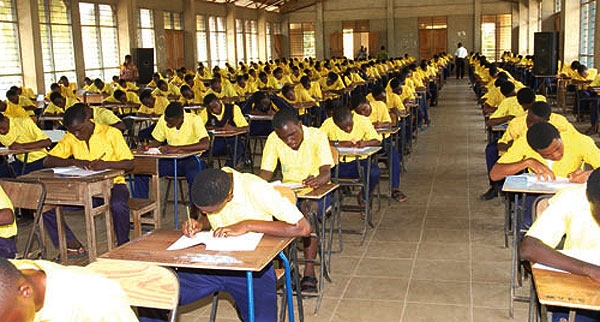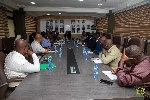'Do or die’ WASSCE mindset major drive for exam fraud in Ghana – EDUWATCH
 Students writing WAEC
Students writing WAEC
The West Africa Senior Secondary School Certificate Examination (WASSCE) is a do or die affair for many parents and students in Ghana.
This was contained in the 2022 WASSCE Ghana Monitoring Report by Education Policy Research and Advocacy Organisation, Africa Education Watch (EDUWATCH).
The report, an outcome of monitoring the 2022 WASSCE online and 33 purposively sampled Examination centres comprising private and public schools across the country between July and September 2022, revealed: “For many parents and students, passing WASSCE is a must, as there are no immediate career progression paths to tertiary level after failure to pass WASSCE.
“In addition, one cannot qualify for public sector jobs like security services, teaching etc, without a pass. This, coupled with the high cost of private remedial schooling, is a major driver of examination fraud.”
According to the report, there were “online leakages in two (2) of 12 papers monitored: Questions for the Elective Mathematics 2 and Core Mathematics 2 papers leaked nine (9) hours before their scheduled time to be written.”
Also, “The involvement of the National Intelligence Bureau (NIB), [formerly known as] BNI, in the printing of questions led to minimal incidences of question leakages compared to WASSCE 2021. The BNI’s involvement, which was highly impactful on questions security, was facilitated by the Minister of Education,” thereby enhancing questions security.
There were increased incidences of institution fraud the report, however, indicated.
“Reduced leakages meant increased exam centre fraud. There were reports of cash collection between GHS300 to GHS3,000 from candidates by some school authorities in return for supervised cheating.
“In some schools, questions were solved and transmitted through WhatsApp platforms or written on whiteboards for candidates to copy during the exams. Specific ‘strongrooms’ were designated by some school authorities for solving the questions before transmitting to students,” the report stated.
It disclosed that there was “inadequate and ineffective external supervision.”
“Out of 776 supervisors deployed to 776 centres, only 18 per cent were external from WAEC with the majority (82 per cent) being staff of the Ghana Education Service (GES), a situation which raises potential conflict of Interest since the WASSCE pass rate is a Key Performance Indicator (KPI) for school heads and other GES directors.”
The WASSCE 2022, commenced on Monday, 1 August 2022, and ended on Tuesday, 27 September 2022
Source: classfmonline.com/Elikem Adiku
Trending News

TEWU-GH clashes with TUC boss over reckless remarks about representation on University Council
12:12
Radio host issues clarification over GIHOC CEO allegations aired on Accra 100.5 FM
13:29
Alhassan Eliasu inducted as Special Envoy for Islamic Affairs by International Youth Network for UNSCR 2250
04:30
YEA CEO distributes 125 bags of maize to SHSs in Bono and Bono East Regions
12:01
Court grants GHC13 million bail to four over cocaine export attempt at KIA
13:20
NDC in Lower Manya Krobo demands withdrawal of MCE nominee
02:19
Ghana Armed Forces oversee seamless command transition at Kofi Annan Peacekeeping Centre
10:36
Domelevo questions GHC20,000 gift limit in new code of conduct for political appointees
10:42
Gov't inaugurates steering committee to boost private participation in power distribution
02:07
Ghana Armed Forces receive armoured vehicles from U.S gov't to boost security operations
10:27




